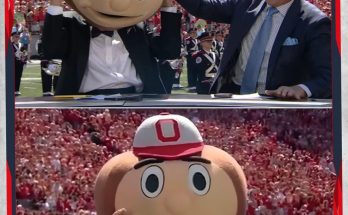The pursuit of a national championship at Notre Dame has always come with a unique blend of tradition, expectation, and scrutiny. As head coach Marcus Freeman enters a pivotal phase of his tenure, the echoes of past glories continue to reverberate through South Bend. But nostalgia alone won’t deliver a title. For Notre Dame to reclaim its place atop college football, Freeman must elevate two pillars essential to championship success: execution on the field and recruiting off of it. These aren’t simply areas for improvement—they are imperatives.
Freeman, in many ways, embodies what Notre Dame hopes to be: young, energetic, driven, and modern while honoring the school’s storied past. He checks boxes that previous coaches perhaps did not. He’s charismatic, relatable to players, respected by peers, and committed to doing things the “Notre Dame way.” But charisma and culture can only carry a program so far. At some point, all great college football teams are defined by their execution in big moments and the depth of talent in their locker room. The 2025 season—and those to follow—will hinge on whether Freeman can evolve in both respects.
Execution, at its core, is about turning preparation into performance. Under Freeman, Notre Dame has at times looked brilliant—aggressive defensively, creative offensively, and emotionally invested. Yet those flashes have too often given way to inconsistency, especially in the biggest games. The narrow losses to Ohio State, Clemson, and USC in 2022, and the gut-wrenching late collapse against Ohio State again in 2023, showed a team that could compete but struggled to finish. The margins in college football’s elite tier are razor-thin. Winning a national championship requires more than just playing a team close—it demands a killer instinct, near-perfect discipline, and the ability to rise when the stakes are highest.
This is where Freeman must take the next step as a coach. His ability to scheme, inspire, and lead is evident. But game-day decision-making—clock management, situational awareness, halftime adjustments—must become more refined. For example, the 10-men-on-the-field debacle in the final seconds against Ohio State wasn’t just a fluke. It was a sign of operational lapses that separate top-tier teams from champions. Mistakes like that don’t just cost games; they stall momentum and cast doubt on a program’s readiness for the sport’s biggest stage.
Freeman doesn’t need to become Nick Saban overnight, but he does need to develop the type of game management and attention to detail that the best coaches use to close out games. That means surrounding himself with elite assistants, empowering coordinators, and adopting a culture of relentless self-scouting. If something isn’t working—be it a scheme, a substitution pattern, or a play-calling rhythm—Freeman must be quick to adapt. National champions don’t just do the basics well; they anticipate problems before they happen and adjust in real time.
Of course, even the most polished in-game tactics won’t matter without elite talent. That brings us to the second—and perhaps more crucial—component of Freeman’s challenge: recruiting. The formula is straightforward, even if the execution is anything but. The teams that hoist the trophy in January are almost always those that bring in top-five recruiting classes year after year. Georgia, Alabama, Ohio State, and LSU have built their programs on the backs of blue-chip players, and the results speak for themselves.
Notre Dame has always had unique constraints in recruiting. Academic standards, cultural fit, and the absence of an NIL war chest on par with SEC powerhouses can complicate the pursuit of 5-star talent. But Freeman has already proven he’s capable of piercing that ceiling. His 2023 and 2024 classes included several high-profile wins, showing that elite talent will still come to Notre Dame if the vision is compelling and the relationships are strong. Now, the mission is to make that the norm, not the exception.
To win a national title, Freeman needs to consistently pull in classes that rank in the top five nationally. Not top ten. Not top twelve. Top five. That means securing difference-makers at quarterback, defensive end, offensive tackle, and cornerback—positions where talent gaps become glaring against elite opponents. The Irish must become a team that not only lands elite recruits but also develops them into NFL-caliber players. That requires a combination of savvy recruiting strategy, high-level assistant coaching, and program-wide alignment around player development.
Quarterback, in particular, remains the most important position in this equation. Notre Dame has had competent quarterbacks in recent years, but not game-changing ones in the mold of Caleb Williams, Bryce Young, or Joe Burrow. The Irish need a player who can tilt the field, elevate those around him, and deliver in crunch time. Freeman and his staff must make the quarterback position a recruiting priority every year, relentlessly pursuing high-upside talents and building an environment where elite QBs want to stay and thrive.
The transfer portal adds another dimension to Freeman’s recruiting responsibilities. While Notre Dame won’t become a portal-first program, the days of ignoring that resource are over. Freeman has already dipped into the portal to fill key gaps—most notably at quarterback—but he must now use it more strategically. Plugging holes, adding veteran depth, and bringing in instant-impact players should all be part of the blueprint. Portal success won’t win a title by itself, but in today’s college football landscape, it’s a necessary complement to traditional recruiting.
Still, recruiting is not just about rankings and raw athleticism. Freeman must ensure that every player who signs with Notre Dame understands what the program represents. That balance—between talent acquisition and cultural fit—is delicate, but vital. Freeman has done well in this regard so far, but as the pursuit of elite talent intensifies, he must hold the line on character, work ethic, and accountability. Championship teams are not just fast and strong—they’re disciplined, cohesive, and selfless. Finding players who buy into the mission is just as important as chasing stars.
It’s also essential that Freeman leverages every available advantage Notre Dame offers. The program’s national brand, rich history, elite academics, and enormous fan base are powerful recruiting tools. But they must be paired with innovation—modern facilities, cutting-edge sports science, and a compelling NIL infrastructure. Notre Dame can’t pretend to be something it’s not, but it must compete where it can. Freeman’s job isn’t just to sell Notre Dame—it’s to evolve it. That means working with administration and donors to create an ecosystem where winning big is not just aspirational, but expected.
None of this will be easy. Winning a national championship at Notre Dame in the modern era is perhaps harder than ever. The schedule is brutal, the margin for error thin, and the competition relentless. But the Irish aren’t as far away as some might think. They’ve recruited well enough to beat top teams on a given Saturday, and with better execution, they could have already broken through. Freeman has the charisma, energy, and vision to lead Notre Dame to the mountaintop. Now he must sharpen his edges, raise the floor of his program, and start stacking wins in the moments that matter most.
There’s a saying in football that “you are what your record says you are.” In the world of championship aspirations, that record includes not just wins and losses, but how you recruit, how you execute under pressure, and how you grow year over year. Freeman is still early in his head coaching career, and growing pains are expected. But at Notre Dame, the patience of the fan base is always inversely proportional to the program’s national standing. The bar isn’t simply winning nine or ten games—it’s bringing home a title. Freeman has the tools. Now he must build the machine.
If he can refine his game-day acumen and raise the recruiting ceiling, Notre Dame won’t just be a playoff contender. It will be a national championship threat. And that, ultimately, is the only standard that matters in South Bend. The echoes are waiting. Marcus Freeman has the chance to wake them—for good.



